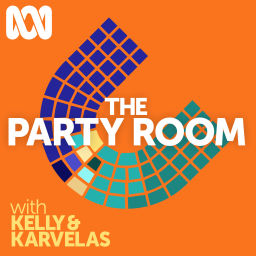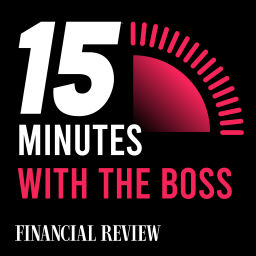
by Royal Australasian College of Medical Administrators
<p>Safeguarding Healthcare leads you through the intricate corridors of hospitals, taking you behind closed doors on an extraordinary journey. This is the podcast that holds a stethoscope to the beating heart of hospitals to reveal the reasoning behind the clinical governance decision making process.</p> <p>Join host, Dr David Rankin, a 35-year veteran of medical administration, as he puts some of Australia’s most senior hospital managers in the hot seat to challenge them with major and often complex hypothetical challenges that reflect some of the most contentious issues facing modern medicine. This podcast offers an unfiltered view of the web of patient safety, medical ethics, and healthcare decision-making.</p> <p>Join us as we explore gripping topics, from the thorny questions surrounding patient consent to the implications of ground-breaking healthcare technologies. Each episode delves into the heart of healthcare, scrutinizing the decisions that impact patient well-being and safety. </p> <p>Discover how these passionate professionals navigate medical minefields, striving to ensure the highest standards of care, all while grappling with a broad and ever-evolving healthcare landscape. Whether you're a seasoned healthcare practitioner, a patient seeking insight into the system, or simply curious about the inner workings of hospitals, this podcast offers an enlightening perspective on the complexities of modern medicine.</p>
Language
🇺🇲
Publishing Since
10/9/2023
Email Addresses
1 available
Phone Numbers
0 available

April 8, 2025
<p>Is shouting ever okay in the workplace? What about comments on personal appearance? And when a physician who was raised in a different age becomes the subject of complaints, what stance should a medical administrator take? ‘Safeguarding Healthcare’ host Dr David Rankin discusses this difficult scenario with Dr Jillann Farmer, the Chief Executive Officer of A Better Culture, the coalition of health professionals working to eliminate bullying, harassment and discrimination in the healthcare workplace. Together they discuss issues surrounding unprofessional conduct, and explore strategies for addressing impaired judgment, creating safe reporting environments, and enforcing organizational norms to ensure accountability.</p> <p><strong><br>Disclaimer:</strong></p> <p>The views, thoughts, and opinions expressed in the following Podcast are the speaker’s own and do not represent the views, thoughts, and opinions of the Royal Australasian College of Medical Administrators (RACMA). The material and information presented here is for general information purposes only, and should not be considered health, legal or financial advice. The cases discussed in the Podcast may be specific to the speaker’s organisation or location, and may not be applicable to other organisations, states, territories or countries. RACMA does not endorse, approve, recommend, or certify any information, product, process, service, or organisation presented or mentioned in this Podcast, and information from this Podcast should not be referenced in any way to imply such approval or endorsement. RACMA will not be held responsible for any losses, damages, or liabilities that may arise from the use of this Podcast. The Podcast may contain descriptions of health incidents that may be graphic and triggering for some people, so listener discretion is advised.</p><p>See <a href="https://omnystudio.com/listener">omnystudio.com/listener</a> for privacy information.</p>

March 25, 2025
<p>Addressing underperforming practitioners is one of the most difficult and complex problems a medical administrator can face. So, what would you do if patient safety was at risk, but there was political pressure involved? In this episode of ‘Safeguarding Healthcare’, host Dr David Rankin discuss this very scenario with Professor Alan Sandford, who is the Director of Medical Academic Development – Regional Medical Pathway, at Central Queensland & Wide Bay Hospital and Health Services. Together they traverse the tensions between medical leadership, patient safety, and administrative pressures. They discuss difficult decisions around credentialing and dealing with an underperforming medic, revealing how medical leaders can navigate these challenges while upholding the principles of clinical governance.</p> <p><strong><br>Disclaimer:</strong></p> <p>The views, thoughts, and opinions expressed in the following Podcast are the speaker’s own and do not represent the views, thoughts, and opinions of the Royal Australasian College of Medical Administrators (RACMA). The material and information presented here is for general information purposes only, and should not be considered health, legal or financial advice. The cases discussed in the Podcast may be specific to the speaker’s organisation or location, and may not be applicable to other organisations, states, territories or countries. RACMA does not endorse, approve, recommend, or certify any information, product, process, service, or organisation presented or mentioned in this Podcast, and information from this Podcast should not be referenced in any way to imply such approval or endorsement. RACMA will not be held responsible for any losses, damages, or liabilities that may arise from the use of this Podcast. The Podcast may contain descriptions of health incidents that may be graphic and triggering for some people, so listener discretion is advised.</p><p>See <a href="https://omnystudio.com/listener">omnystudio.com/listener</a> for privacy information.</p>

March 11, 2025
<p>A surgeon with, for many reasons, a questionable reputation comes up in a hospital’s three-yearly credentialling cycle and serious performance issues need to be addressed. What are the best steps for an administrator to follow? In this episode of “Safeguarding Healthcare,” host Dr David Rankin is joined by the Chief Medical Officer at Safer Care Victoria, Professor Andrew Wilson, to delve into the complexities of medical credentialing and performance management. They explore a hypothetical scenario involving a surgeon whose credentials raise concerns about patient safety and team culture. The discussion highlights the challenges in balancing credentialing with ongoing performance evaluations and the importance of transparent, defendable processes in medical administration.</p> <p><strong><br>Disclaimer:</strong></p> <p>The views, thoughts, and opinions expressed in the following Podcast are the speaker’s own and do not represent the views, thoughts, and opinions of the Royal Australasian College of Medical Administrators (RACMA). The material and information presented here is for general information purposes only, and should not be considered health, legal or financial advice. The cases discussed in the Podcast may be specific to the speaker’s organisation or location, and may not be applicable to other organisations, states, territories or countries. RACMA does not endorse, approve, recommend, or certify any information, product, process, service, or organisation presented or mentioned in this Podcast, and information from this Podcast should not be referenced in any way to imply such approval or endorsement. RACMA will not be held responsible for any losses, damages, or liabilities that may arise from the use of this Podcast. The Podcast may contain descriptions of health incidents that may be graphic and triggering for some people, so listener discretion is advised.</p><p>See <a href="https://omnystudio.com/listener">omnystudio.com/listener</a> for privacy information.</p>

Chat 10 Looks 3

ABC Listen

ABC listen

ABC listen

ABC listen

ABC listen

ABC listen

ABC

Dev Raga

Dr Billy Garvey, Nick McCormack

ABC listen

ABC listen

The Australian Financial Review

Squiz Media

ABC listen
Pod Engine is not affiliated with, endorsed by, or officially connected with any of the podcasts displayed on this platform. We operate independently as a podcast discovery and analytics service.
All podcast artwork, thumbnails, and content displayed on this page are the property of their respective owners and are protected by applicable copyright laws. This includes, but is not limited to, podcast cover art, episode artwork, show descriptions, episode titles, transcripts, audio snippets, and any other content originating from the podcast creators or their licensors.
We display this content under fair use principles and/or implied license for the purpose of podcast discovery, information, and commentary. We make no claim of ownership over any podcast content, artwork, or related materials shown on this platform. All trademarks, service marks, and trade names are the property of their respective owners.
While we strive to ensure all content usage is properly authorized, if you are a rights holder and believe your content is being used inappropriately or without proper authorization, please contact us immediately at [email protected] for prompt review and appropriate action, which may include content removal or proper attribution.
By accessing and using this platform, you acknowledge and agree to respect all applicable copyright laws and intellectual property rights of content owners. Any unauthorized reproduction, distribution, or commercial use of the content displayed on this platform is strictly prohibited.